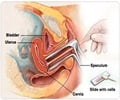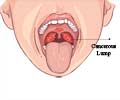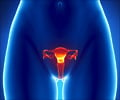Some cancer drugs can be used to treat human papillomavirus (HPV) infections.

TOP INSIGHT
HPV infection is one of the leading cause of cervical cancer deaths worldwide and can be treated with HDAC inhibitor drugs.
"Safe, effective and inexpensive therapeutic agents are urgently needed," said N. Sanjib Banerjee, Ph.D., assistant professor of Biochemistry and Molecular Genetics at UAB and lead author of the vorinostat study.
Epithelium of anogenital sites -- the cervix, penis and anus -- or epithelium of the mouth and throat are sites of HPV infection. But HPVs cannot be propagated in conventional cell culture, hampering the investigation into their pathogenic effects. The laboratory of Louise Chow, Ph.D., and Thomas Broker, Ph.D., in the UAB Department Biochemistry and Molecular Genetics has investigated HPV-host interactions for decades. They discovered that the productive program of HPV depends on differentiation of the epithelium into a full-thickness, squamous epithelium. Furthermore, HPV reactivates host DNA replication in these differentiated cells, such that the replication proteins and substrates become available to support viral DNA amplification.
The Chow and Broker lab re-produced a fully differentiated human squamous epithelium by culturing primary human keratinocytes at an air-media interphase for two to three weeks, a growth they call raft culture. In 2009, their lab developed a breakthrough model for a raft culture of HPV-18-infected primary human keratinocytes, allowing a robust amplification of HPV-18 DNA and production of infective viral progeny. This productive raft culture is an ideal model for preclinical investigation of potential anti-HPV agents.
Banerjee and colleagues hypothesized that inhibitors of histone deacetylases, or HDACs, would inhibit HPV DNA amplification because of their known mechanism of disrupting chromosomal DNA replication. Chromosomal replication requires HDAC alterations of histone proteins, the proteins that act like spools that wind DNA to help package and condense chromosomes and the viral genome. Vorinostat inhibits many HDACs, so it might interrupt not only chromosomal replication but also viral DNA replication.
The UAB team also examined how vorinostat affected levels and functions of viral oncoproteins, and they described the mechanisms that led to programmed cell death in HPV-18-infected cultures. "On the basis of these detailed studies," Banerjee said, "we suggest that HDAC inhibitors are promising compounds for treating benign HPV infections, abrogating progeny production and hence interrupting infectious transmission."
Source-Eurekalert
 MEDINDIA
MEDINDIA




 Email
Email










